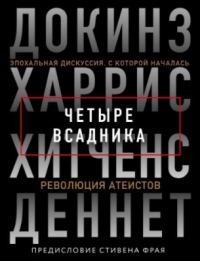Книга Рассказ предка. Паломничество к истокам жизни - Ричард Докинз
Читать книгу Рассказ предка. Паломничество к истокам жизни - Ричард Докинз полностью.
Шрифт:
-
+
Интервал:
-
+
Закладка:
Сделать
Перейти на страницу:
Перейти на страницу:
Книги схожие с книгой «Рассказ предка. Паломничество к истокам жизни - Ричард Докинз» от автора - Ричард Докинз:
Комментарии и отзывы (0) к книге "Рассказ предка. Паломничество к истокам жизни - Ричард Докинз"








